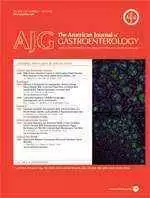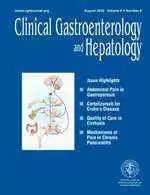.webp.53968339448bb7477097e04998a3e470.webp)
Celiac.com 12/23/2013 - Symptoms of celiac disease negatively impact the social activities and emotional states of some patients. A team of researchers recently set out to assess rates of altered eating behavior in celiac patients.
 The research team included V. Passananti, M. Siniscalchi, F. Zingone, C. Bucci, R. Tortora, P. Iovino, and C. Ciacci. They are variously affiliated with the Department of Clinical and Experimental Medicine at University Federico II of Naples, Italy, and with the Department of Medicine and Surgery, University of Salerno, Baronissi Campus, in Salerno, Italy.
The research team included V. Passananti, M. Siniscalchi, F. Zingone, C. Bucci, R. Tortora, P. Iovino, and C. Ciacci. They are variously affiliated with the Department of Clinical and Experimental Medicine at University Federico II of Naples, Italy, and with the Department of Medicine and Surgery, University of Salerno, Baronissi Campus, in Salerno, Italy.
Celiac.com Sponsor (A12):
The researchers evaluated 100 celiac adults and 100 control subjects of statistically similar gender, age, and physical activity. The researchers had both celiac patients and control subjects complete a dietary interview and the Binge Eating Staircases, Eating Disorder Inventory (EDI-2), Eating Attitudes Test, Zung Self-Rating Depression Scale, State Trait Anxiety Inventory Forma Y (STAI-Y1 and STAI-Y2), and Symptom Check List (SCL-90).
The results showed that, compared with the control group, celiac patients had higher STAI-Y1 and STAI-Y2, Somatization, Interpersonal, Sensitivity, and Anxiety scores of the SLC-90.
EDI-2 differed in pulse thinness, social insecurity, perfectionism, inadequacy, aceticisms, and interpersonal diffidences between celiac disease patients and healthy female controls, whilst only in interceptive awareness between celiac disease patients and healthy male controls.
Celiac patients with gastrointestinal symptoms showed dependently higher EAT-26 scores. The EAT26 showed a connection between indices of diet-related disorders in both celiac disease, and the feminine gender after controlling for anxiety and depression.
Eating disorders appear to be more frequent in young celiac women than in celiac men and in healthy control subjects.
Overall, these results indicate that pathological eating behavior in celiac adults may be due to celiac disease itself, rather than the gastrointestinal related symptoms or psychological factors.
Source:
- Open Original Shared Link







Recommended Comments
There are no comments to display.